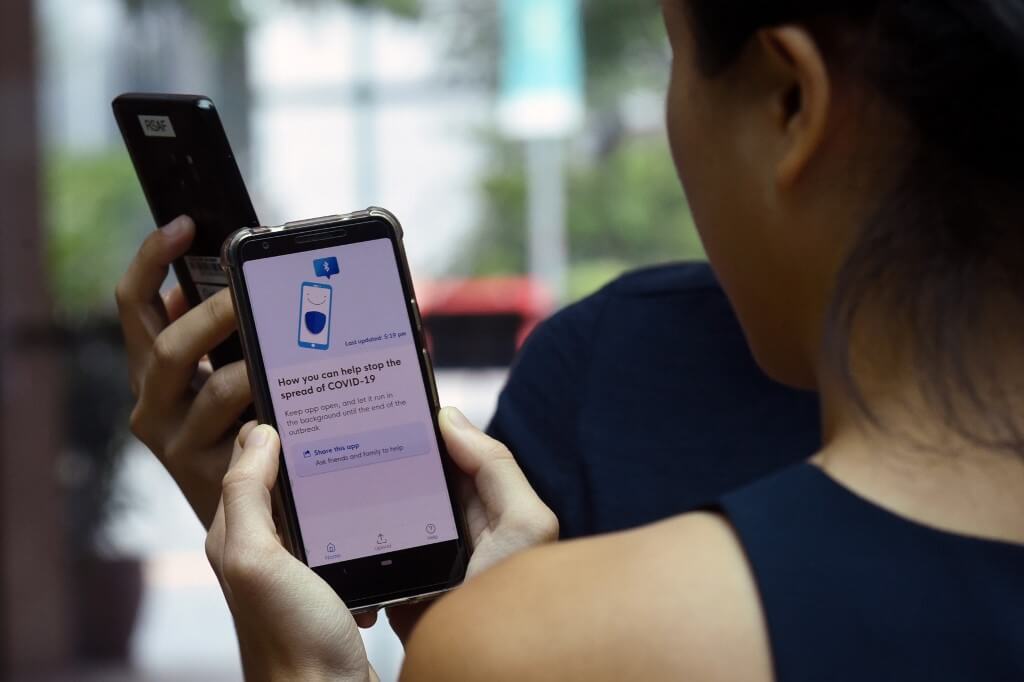
Landscape of the Singapore financial district and business building. Source: Shutterstock
Singapore GovTech targets SME digitization for post-crisis growth
- Singapore’s GovTech agency will spend US$2.52 billion on ICT procurement in 2020
- The aim is to drive digital transformation among SMEs stimulating usage and adoption of cloud, big data and AI
- Singapore’s ICT spend will be up by 30% from last year owed to the impact of the pandemic
The coronavirus pandemic has accelerated the adoption of various digital in Singapore, whether that’s an uptick in video teleconferencing, online shopping, delivery platforms, virtual events, and more.
These demands have put a fire under local small-medium enterprises (SMEs), many of which have had to up their digital transformation (DX) efforts to deliver online services and support as their customers moved online.
The city-state is regarded as a regional tech leader, attracting significant data center spend despite its small footprint, and ranked first in the Asian Digital Transformation Index ahead of South Korea, Japan, and Hong Kong.
Much of that reputation has been carved out by a government with strong policies around information and communication technology, ready to play an active role in the country’s ongoing digitization.
Investing in the future
Now, in a time of crisis, the government wants businesses to capitalize on the current momentum to go digital, and is increasing its federal ICT budget to SG$3.5 billion (US$2.52 billion) in 2020, with 80% of those new ICT contracts allocated to go to SMEs.
The announcement was made by the Government Technology Agency (GovTech) Singapore, which oversees the public sector’s ICT deployment, as a part of the Digital Government Blueprint, a five-year roadmap outlining how technology will help drive national development efforts from the public sector.
GovTech’s 2020 ICT expenditure – which represents 30% more than last year – will cover the development of new digital tools to help COVID-19 relief and response efforts, along with funds to push the development of digital systems that can support businesses including investments in cloud and data analytics, artificial intelligence (AI), smart sensors and also funding to modernize the government’s existing ICT infrastructure.
GovTech says that nearly 70% of total ICT contracts last year were awarded to SMEs, and the agency will continue working with Singapore’s Finance Ministry to streamline procurement processes so that SMEs will be afforded opportunities to obtain these ICT contracts.
To reduce the procurement process for SMEs, GovTech is introducing new dynamic contracts and bulk co-development tenders, which were pilot tested last year. The 2019 pilot saw two ICT bulk tenders amounting to more than SG$700 million being awarded, in co-development services and in robotic process automation (RPA). SMEs comprised over half of the industry partners that secured a share of those contracts.
In 2020, the Singapore government will be issuing bulk tenders for services in user experience (UX) design, application development, agile development projects, and data science and AI.
In addition, last month Singapore announced that it was setting aside more than SG$500 million (US$352.49 million) primarily to stimulate SMEs to adopt electronic payments systems, e-invoicing, as well as other advanced digital solutions, such as tools to develop offline-to-online (O2O) business models that will enable SMEs to access new domestic and international revenue streams.

Singaporeans trying TraceTogether, a contact-tracing app developed by GovTech to help prevent against COVID-19. Source: AFP
Emerging ‘stronger’
“As we take on the new normal of COVID-19, we are re-engineering our backend digital infrastructure that underpins the delivery of front-end government digital services to citizens, businesses, and public officers,” GovTech’s chief executive Kok Ping Soon said.
“COVID-19 has illustrated the importance of digitalization and the need to accelerate it within and beyond the public sector. We hope that businesses, especially the SMBs, will benefit from the larger pool and higher value of ICT procurement opportunities, work with us to build a smart nation and digital government, and emerge stronger from this crisis together.”
The government’s recent investments into cloud, increased use of AI, sensors, and ICT infrastructure has helped deliver digital services at scale to the public in time to be useful in response to the pandemic.
For example, GovTech’s engineers were able to quickly develop and roll out applications such as contact tracing app TraceTogether, digital check-in system SafeEntry, and piloted the use of the AI-powered robot dog, SPOT, to encourage safe distancing at Bishan-Ang Mo Kio Park, and to deliver essential medical supplies at the Changi Exhibition Centre community isolation facility.
READ MORE
- Strategies for Democratizing GenAI
- The criticality of endpoint management in cybersecurity and operations
- Ethical AI: The renewed importance of safeguarding data and customer privacy in Generative AI applications
- How Japan balances AI-driven opportunities with cybersecurity needs
- Deploying SASE: Benchmarking your approach


